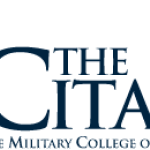- Industry: Education
- Number of terms: 941
- Number of blossaries: 0
- Company Profile:
The voice and implied speaker of a fictional work, to be distinguished from the actual living author. See Point of view.
Industry:Literature
A figure of speech in which a closely related term is substituted for an object or idea. An example: We have always remained loyal to the crown. See Synecdoche.
Industry:Literature
A comparison between essentially unlike things without an explicitly comparative word such as like or as. An example is "My love is a red, red rose." Compare Simile.
Industry:Literature
A contrast or discrepancy between what is said and what is meant or between what happens and what is expected to happen in life and in literature. In verbal irony, characters say the opposite of what they mean. In irony of circumstance or situation, the opposite of what is expected occurs. In dramatic irony, a character speaks in ignorance of a situation or event known to the audience or to the other characters.
Industry:Literature
The pattern of related comparative aspects of language, particularly of images, in a literary work.
Industry:Literature
A brief story with an explicit moral provided by the author. Fables typically include animals as characters. Their most famous practitioner in the west is the ancient Greek writer Aesop.
Industry:Literature
The selection of words in a literary work. A work's diction forms one of its centrally important literary elements, as writers use words to convey action, reveal character, imply attitudes, identify themes, and suggest values. We can speak of the diction particular to a character, as in Iago's and Desdemona's very different ways of speaking in Othello. We can also refer to a poet's diction as represented over the body of his or her work, as in Donne's or Hughes's diction.
Industry:Literature
The conversation of characters in a literary work. In fiction, dialogue is typically enclosed within quotation marks. In plays, characters' speech is preceded by their names.
Industry:Literature
The means by which writers present and reveal character. Although techniques of characterization are complex, writers typically reveal characters through their speech, dress, manner, and actions.
Industry:Literature
